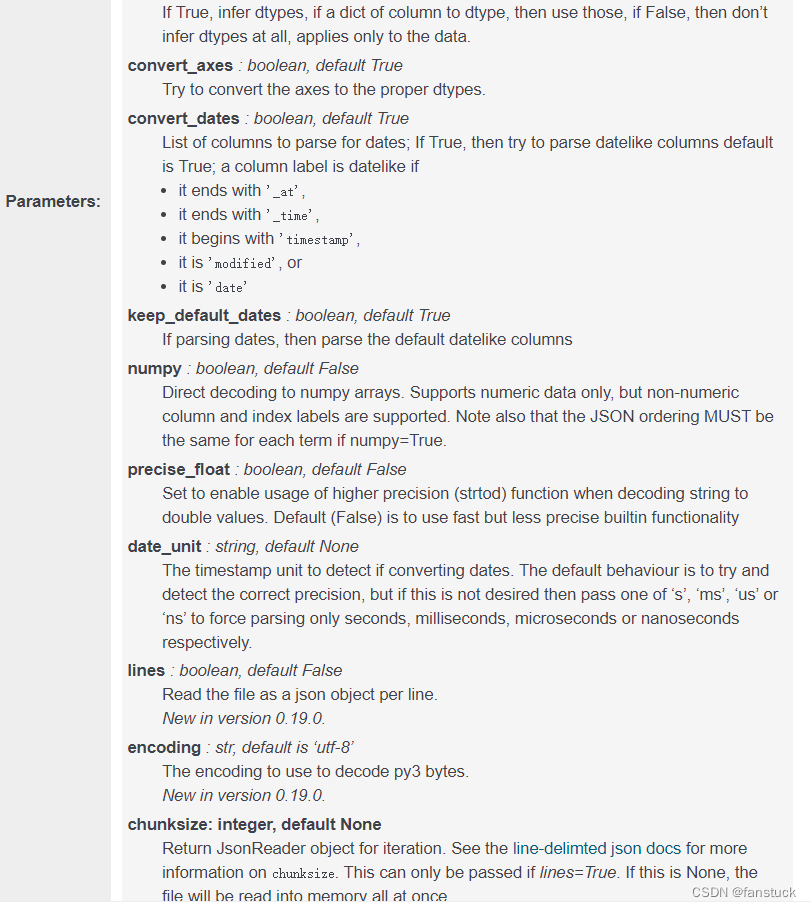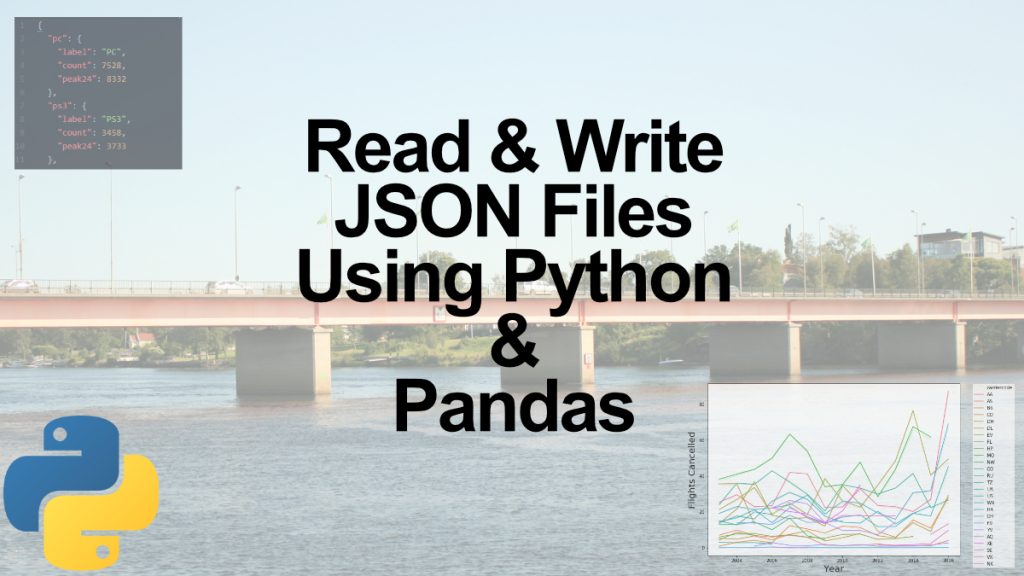Read_json (path_or_buf = none, orient = none,. See the way customer_id is used to relate the entries in customers_df. Web i have a json file that consists of 1m of data. Import json import pandas as pd with open ('test.json') as f: Web read json string files in pandas read_json().
Org = json.load (f) transformed_dict = [ {k:list (v.values ()) [0] for k,v in original_dict.items ()} for. I need to extract data from crew [] for each 'parent' id: Df = pd.read_json (filepath_or_buffer, orient=none, typ='frame', numpy= false, precise_float= false,encoding= none,lines=. Web to read the files, we use read_json () function and through it, we pass the path to the json file we want to read. Web the syntax of read_json () in pandas is:
Web so the object has fields id int, cast [] and crew []. Web a possible alternative to pandas.json_normalize is to build your own dataframe by extracting only the selected keys and values from the nested dictionary. See the way customer_id is used to relate the entries in customers_df. Note nan’s and none will be converted to null and datetime objects will be converted to unix timestamps. Web import pandas as pd # read the entire file into a python array with open ('c:/users/alberto/nutrients.json', 'rb') as f:
X.decode ('unicode_escape'), data) but only. Import pandas as pd df = pd.read_json('strings.json', lines=true) print(df) share. In this post, you will learn how to do that with. The string could be a url. I wanted to extract the skills based on id so that each id has different skills. Web 5 answers sorted by: Note nan’s and none will be converted to null and datetime objects will be converted to unix timestamps. Web a possible alternative to pandas.json_normalize is to build your own dataframe by extracting only the selected keys and values from the nested dictionary. I need to extract data from crew [] for each 'parent' id: Web the syntax of read_json () in pandas is: 30 if my_json is a dictionary as i suspect, then you can skip the pd.read_json and just do pd.dataframe (my_json ['entities']) size type uuid 0. The string could be a url. Web you can use the pandas library to read the json file. For file urls, a host is expected. Web you will need to expand that answer to fully parse the json, but that should give a good start.
Web A Possible Alternative To Pandas.json_Normalize Is To Build Your Own Dataframe By Extracting Only The Selected Keys And Values From The Nested Dictionary.
Web the syntax of read_json () in pandas is: Web i have a json file that consists of 1m of data. A local file could be: In this post, you will learn how to do that with.
Web Import Pandas As Pd # Read The Entire File Into A Python Array With Open ('C:/Users/Alberto/Nutrients.json', 'Rb') As F:
Web convert the object to a json string. You can do this for urls, files, compressed files and anything that’s in json format. For file urls, a host is expected. The string could be a url.
The String Could Be A Url.
Web json is plain text, but has the format of an object, and is well known in the world of programming, including pandas. I wanted to extract the skills based on id so that each id has different skills. See the way customer_id is used to relate the entries in customers_df. Df = pd.read_json (filepath_or_buffer, orient=none, typ='frame', numpy= false, precise_float= false,encoding= none,lines=.
Import Pandas As Pd Df = Pd.read_Json('Strings.json', Lines=True) Print(Df) Share.
Web i could read the json file with with open ('/root/code/itjuzi/itjuzi/investorinfo.json','rb') as f: In our examples we will be using a json file called. Read_json (path_or_buf = none, orient = none,. Web you can use the pandas library to read the json file.









